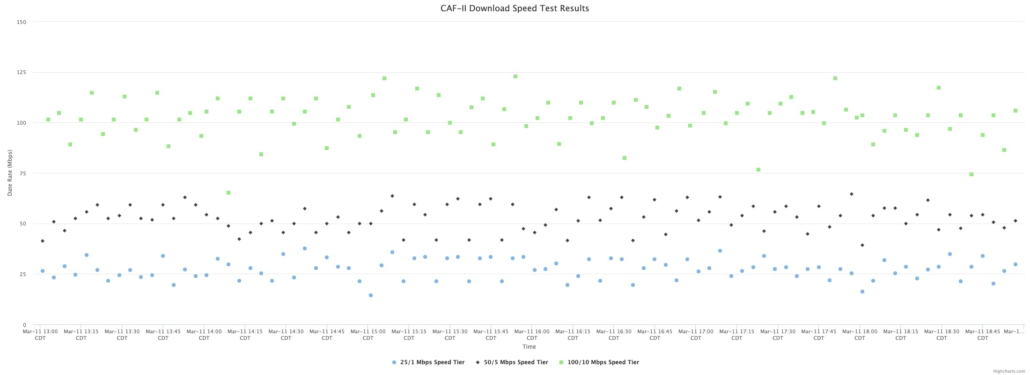OLYMPIA — Over the next two years, Washington plans to lend $14.44 million and give another $7.11 million to public agencies, tribes and businesses to bring high-speed internet to rural areas and Indian reservations.
The money, set aside in the new two-year capital budget, is a fraction of the $1 billion the Washington Independent Telecommunications Association estimates will be needed to blanket the state with service that meets the federal definition of high-speed internet.
Because the funding will be mostly loans, the program may not do much to introduce internet to isolated areas with few paying customers, the association’s executive director, Betty Buckley, said May 2.
“If we could make money or even repay a loan, we’d have done it already,” said Buckley, who represents 18 small companies that serve rural areas.
“We are cutting out the really remote areas,” she said. “Everyone wants to make rural broadband happen, but no one wants to pay for it.”
Opening an office in the Department of Commerce to oversee broadband expansion received bipartisan support from legislators. Lawmakers also directed the state’s public works board to distribute $21.55 million for high-speed internet projects.
Presumably, legislators will continue to allocate more money in future budgets, and Gov. Jay Inslee’s office likely will advocate a larger share to put in grants, according to an adviser.
Early in the session, the governor’s office suggested a 50-50 split between loans and grants. In most unserved areas, only grants will make sense, according to the adviser.
The rules will favor projects on tribal lands, in rural counties or urban areas with high unemployment or low incomes. An internet service provider will have a chance to object to a competitor getting public money.
The state has set a goal of making high-speed internet available to every home and business by 2024. The Federal Communications Commission defines high-speed internet as download speeds of at least 25 megabits per second.
Netflix, the video provider, recommends the slower 5 megabits per second to view movies in high-definition and 25 megabits per second for “ultra high-definition.”
The USDA awards grants to bring “sufficient” internet service to rural areas. The agency defines sufficient as 10 megabits per second.
“We can have a brand-new federally funded service and layer state money right on top of it,” Buckley said.
In a really tough budgetary year, we are happy to be walking away with any level of funding for broadband so I would chalk it up as a win. In the future we will likely continue to advocate for a greater percentage of overall funding to be in grants.
The definition of broadband internet continues to evolve, according to a USDA report released Tuesday. As technology advances, famers likely will need faster internet speeds, the report states.
The Washington Farm Bureau put a high priority on passing the rural broadband bill. According to the FCC’s latest survey, nearly all the state’s 6 million urban residents can have high-speed internet at their homes or businesses. But nearly 1 in 10 of the state’s 1 million rural residents can’t.
“We’re very excited it passed,” Farm Bureau associate director of government relations Bre Elsey said. “It’s really just a start.”
Elsey said she would not be surprised if the ratio of loans to grants was revised as lawmakers see the results of the program. She also said she wouldn’t be surprised if the standards for internet speeds change. “It’s hard to hit a target when the goalpost keeps moving,” she said.
As of the end of 2016, 24 million Americans did not access to high-speed internet at a fixed location, according to the FCC. Some have mobile internet service, but that might not be reliable enough or fast enough to keep up, according to the USDA report.
The USDA said there isn’t enough information available to estimate how much bringing high-speed internet to unserved areas would cost. In places with few customers, it’s unlikely internet providers will extend service to the last mile, so rural broadband may need to follow the example of rural electrification, according to the report.
“Broadband in rural America will be as transformative in the 21st century as rural electrification was in the last century,” USDA Secretary Sonny Perdue said in the report.
Read the original article here







 Congratulations to Doug Weis, winner of the Pioneer Award, and R J DelMese who received this year’s President’s Award. R J received his award at this year’s annual meeting, which was held in Salishan, in recognition for his work on our scholarship and accounting committees. R J has also ensured that Moss Adams is a frequent sponsor to WITA events such as our Leadership Conference. He’s also volunteered hours of time as a trainer for our accounting seminars as well as preparing comments and background data for legislative hearings and similar forums.
Congratulations to Doug Weis, winner of the Pioneer Award, and R J DelMese who received this year’s President’s Award. R J received his award at this year’s annual meeting, which was held in Salishan, in recognition for his work on our scholarship and accounting committees. R J has also ensured that Moss Adams is a frequent sponsor to WITA events such as our Leadership Conference. He’s also volunteered hours of time as a trainer for our accounting seminars as well as preparing comments and background data for legislative hearings and similar forums. WITA started the new session off with a huge bang not only thanks to our members but also thanks to our Member Coordinator, Shellie Burnham, who did a stellar job of taking care of all the details. On January 21st and 22nd WITA members were in town to meet with legislators, have a board meeting and kick off the new session with a Holiday Gathering. While other lobbying groups were struggling to get appointments on what turned out to be two of the busiest days of session, Shellie kept us busy with so many meetings that we often had to split the group with Dan Coyne going off in one direction and another group heading in another direction with me. Mike Oblizalo ended up handling one meeting by himself, something we try to avoid but we knew Mike was up for it. By the end of those two days we’d met with 25 legislators including almost every member of the House Committee on Innovation, Technology and Economic Development (ITEC).
WITA started the new session off with a huge bang not only thanks to our members but also thanks to our Member Coordinator, Shellie Burnham, who did a stellar job of taking care of all the details. On January 21st and 22nd WITA members were in town to meet with legislators, have a board meeting and kick off the new session with a Holiday Gathering. While other lobbying groups were struggling to get appointments on what turned out to be two of the busiest days of session, Shellie kept us busy with so many meetings that we often had to split the group with Dan Coyne going off in one direction and another group heading in another direction with me. Mike Oblizalo ended up handling one meeting by himself, something we try to avoid but we knew Mike was up for it. By the end of those two days we’d met with 25 legislators including almost every member of the House Committee on Innovation, Technology and Economic Development (ITEC).